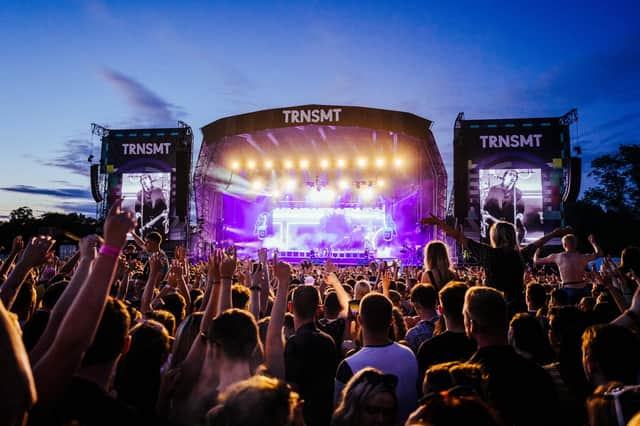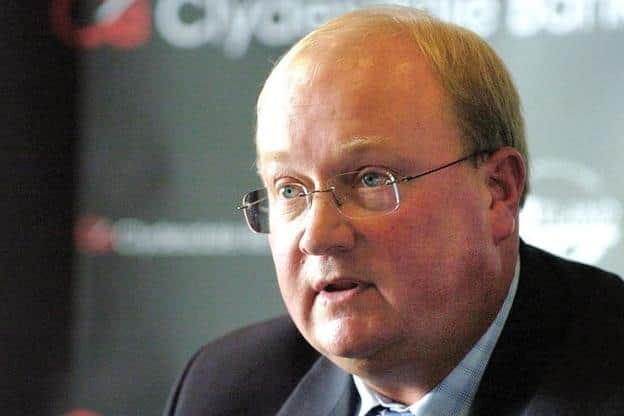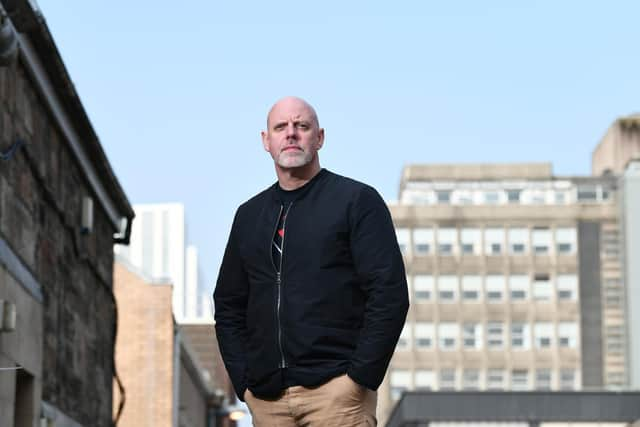Scotland is facing two and a half years without major festivals or events, warns industry chief


Paul Bush, chief executive of government agency EventScotland, said there was now real recognition that there would be no return to “business as usual” for the sector, which is worth more than £6 billion to the economy.
Citing the recent cancellation of Glastonbury and the threat to the Tokyo Olympics, Mr Bush said the events industry was “becoming increasingly resigned” to the reality that festivals and venues would be able to operate normally.
Advertisement
Hide AdAdvertisement
Hide AdHe admitted long-term support will be needed for businesses reliant on the country’s best-known events going ahead if they are to “survive” the vaccine roll-out this year.
Mr Bush admitted he had “no idea” what kind of small-scale events were likely to be allowed to take place over the main festivals season, which normally runs from May-October.
However event organisers insisted it was too early to “give up” on them going ahead this year due to the swift progress being made with the vaccine roll-out compared with the rest of the world.
Festivals in Orkney, Shetland and the Isle of Lewis have already pulled the plug on their planned events this year.
However others, including the Edinburgh festivals and the Tattoo, Glasgow’s TRNSMT festival and Belladrum in the Highlands have said they are still optimistic about going ahead as normal.
In a new analysis of the outlook for the industry, published this week, Mr Bush predicted Scotland would not be seeing “a summer of capacity crowds,” but said work was ongoing on a route map for the return of events which would give “some clarity and timelines about what may be permitted.”
Mr Bush added: “The reality is, however, that the staging of events at any level of reduced capacity is not sustainable, even as a short-term measure.
Advertisement
Hide AdAdvertisement
Hide Ad"Not only are they not commercially viable with reduced capacities and physical distancing, they also lose some of their spark and lustre. It’s that shared experience with family, friends and even complete strangers that draws many of us to attend an event.
“May-October is traditionally the principle trading period for events and with the opportunity for a business-as-usual summer for our sector rapidly diminishing, highly-skilled businesses now face the prospect of two-and-a-half years without income.”


In an exclusive interview, Mr Bush said: “I’m trying to be honest, realistic and pragmatic. There’s a long way to go. We don't really know where we are yet. People have to be patient.
“Over the next four-six weeks we will hopefully get some indications of the impacts of the vaccine roll-out, the lockdown restrictions, how we are managing the variants of the virus.
“However even though the number of cases have gone down significantly over the last week the number of deaths that are being recorded are still horrifying. The grim reality is that if you get sick you’re in trouble. Bringing together thousands and thousands of people in close-knit environments, the virus loves it.
“Everybody in the industry would love to have a crystal ball but we just don’t have it. It wrong be wrong of me to tell people they’re going to have full venues because we just don’t know that.”


Geoff Ellis, chief executive of DF Concerts, Scotland’s biggest concert promoter, which organises the TRNSMT festival, said: “Everyone appreciates that it is not safe to re-open right now.
Advertisement
Hide AdAdvertisement
Hide Ad"The summer is still months away yet and it is really encouraging to see just how fast the governments are rolling out the vaccines programme.
"We’re pretty much leading the way globally on the vaccine roll out, and hearing reports that the adult population could potentially be vaccinated by May gives the whole events industry cautious confidence that all hope for the summer is not yet lost.
“Most of the industry cannot viably re-open with physical distancing in place, barring limited, low-capacity exceptions.
“We know that the landscape needs to look very different before we can welcome back audiences to live entertainment and we will all work closely with the government and local authorities to ensure that we are ready with mitigations and protocols in place.
"However, let’s not give up this early. Let’s give the government the time they need to get the vaccinations done and assess all the relevant data.
"In the meantime, the industry will plan to put the necessary measures in place to ensure a safe, non-physically distanced return to live entertainment at some point this summer.”
Peter Duthie, chief executive of the Scottish Event Campus in Glasgow, which includes the SSE Hydro, is chairing an events industry task force.He said: “It’s clearly a hugely challenging time for the sector as we’ve not had any events for the best part of a year now.
Advertisement
Hide AdAdvertisement
Hide Ad“We have a hugely diverse industry which is also highly regulated. A lot of people don’t realise just how professional the industry is and how well placed it is to deal with risks involved in staging events as that’s what we do on a day-to-day basis.
"Working with the government and the public health officials so that they fully understand what we are capable of, and we understand their concerns and what they’re trying to achieve, will allow us to get back to events at some point in the future.
"It’s very difficult to put a timeline on it because there are so many variables. Everything is so uncertain at the moment.
“It’s early days in terms of the vaccine roll-out and understanding its impact. That will be a crucial factor.
“Generally speaking, the events industry runs at capacities which make them financially viable.
"As soon as you get into physical distancing, the capacity constraints reduce your revenue dramatically but your costs are still the same. Live entertainment just doesn’t function with any form of physical distancing.”
A message from the Editor:
Thank you for reading this article. We're more reliant on your support than ever as the shift in consumer habits brought about by coronavirus impacts our advertisers.
If you haven't already, please consider supporting our trusted, fact-checked journalism by taking out a digital subscription.
Joy Yates
Editorial Director
Comments
Want to join the conversation? Please or to comment on this article.